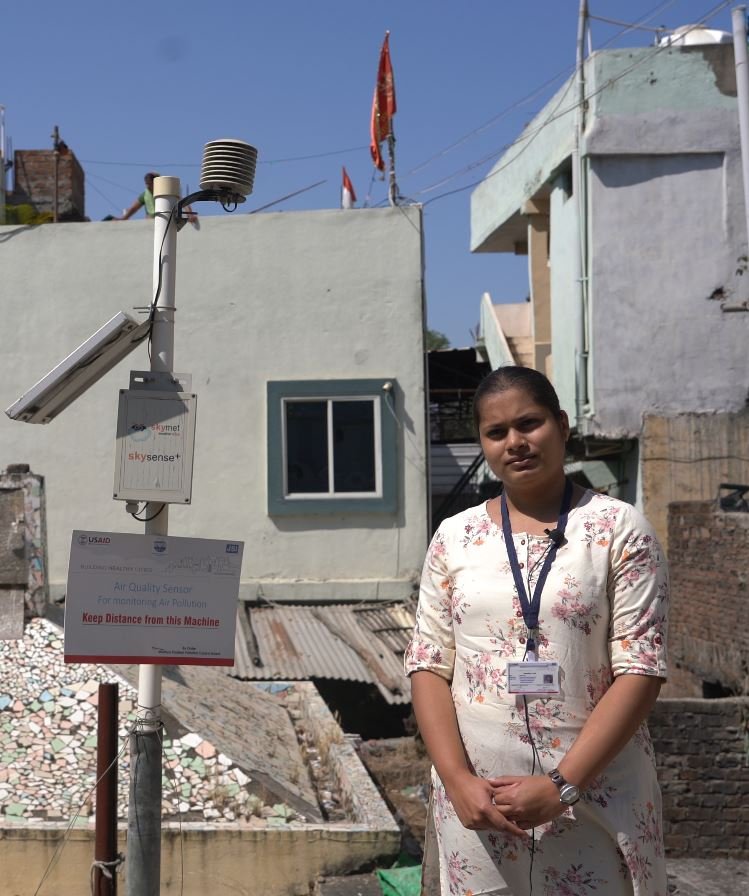Community-Led Study on Air Quality in Indore, India – a USAID-Funded Building Healthy Cities Project
The Building Healthy Cities (BHC) project led a study in Indore, India to assess opportunities for community participation in measuring and identifying the main sources of air pollution and mitigation measures using local data from low-cost air quality sensors. This work is increasingly urgent and continued research demonstrates the significant consequences of air pollution on maternal health outcomes, including low birth-weight and stillbirths. The report, which includes recommendations for other cities considering air quality improvement initiatives, is available on the project’s website.
A Clean Air Guide with a community-based sensor.
TD Environmental guided the BHC team in designing the air sensor study, selecting accurate sensors, and interpreting data. The study focused on 19 sites including residential, industrial, commercial, and high-traffic locations. Local volunteers were trained to be clean air guides (CAG) at each site. CAGs maintain and read the air sensor data, educate the community, and organize and support advocacy efforts.
The quantitative data collected through this study include community surveys and air quality data from the sensors. The qualitative data include group discussions with community members, in-depth interviews of individuals including city officers and service managers, and information collected through journey maps. The major findings are:
Participating communities were interested in and accepted the sensors and the CAGs efforts, particularly in the residential areas.
CAGs and citizens gained knowledge about air pollution and air quality in their neighborhoods.
Over half the respondents noted an increase in personal efforts to control air pollution since the start of the study.
The air quality data, along with the qualitative data and advocacy from the CAGs, led to government increases in air-quality improvement action.
An Air Quality Awareness Walk put on by the CAGs.
This study was conducted in close consultation with Madhya Pradesh Pollution Control Board and Indore Smart City Development Limited (ISCDL), with implementation support from the Indore School of Social Work, TD Environmental Services, and Skymet Weather Services.
Building Healthy Cities is a five-year cooperative agreement funded by the United States Agency for International Development (USAID) under Agreement No. AID-OAA-A-17-00028, beginning September 30, 2017. BHC is implemented by JSI Research & Training Institute, Inc. (JSI) with partners International Organization for Migration, Thrive Networks Global, and Urban Institute, and with support from Engaging Inquiry, LLC. This project is made possible by the generous support of the American people through USAID. USAID administers the U.S. foreign assistance program providing economic and humanitarian assistance in more than 100 countries worldwide.


